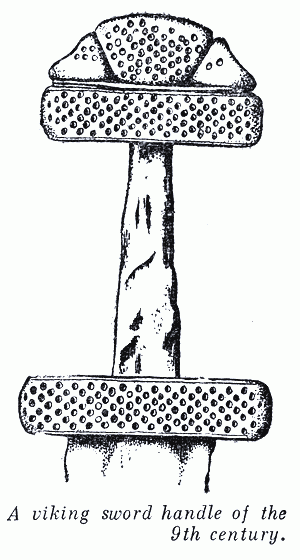Unification of the Anglo-Saxon Kingdoms
Category: 09th centuryESTABLISHMENT OF THE KINGDOM OF ENGLAND
For three centuries a struggle went on between the little Anglo-Saxon kingdoms set up in the 5th-6th centuries.
As feudal relations develop the owners of the big landed estates strive to unify the separate kingdoms into one state under the power of one king.
At the end of the 8th century another branch of Germanic people begins to attack Britain.
The separate Anglo-Saxon kingdoms fighting among themselves become an easy prey for the invaders.
The 9th century sees the political unification of the Anglo-Saxon kingdoms.
We shall learn:
- how the united kingdom of England was established;
- how England was raided by new enemies;
- how the kingdom of England was strengthened under the reign of Alfred the Great.
Unification of the Anglo-Saxon Kingdoms
The Anglo-Saxon kingdoms waged a constant struggle against one another for predominance over the country. From time to time some stronger state seized the land of the neighbouring kingdoms and made them pay tribute, or even ruled them directly. The number of kingdoms was always changing; so were their boundaries.
The greatest and most important kingdoms were Northumbria, Mercia and Wessex. For a time Northumbria gained supremacy. Mercia was the next kingdom to take the lead. The struggle for predominance continued and at last at the beginning of the 9th century Wessex became the strongest state. In 829 Egbert, King of Wessex, was acknowledged by Kent, A viking sword handle of the Mercia and Northumbria. This was really the beginning of the united kingdom of England, for Wessex never again lost its supremacy and King Egbert became the first king of England. Under his rule all the small Anglo-Saxon kingdoms were united to form one kingdom which was called England from that time on.
The clergy, royal warriors and officials supported the king’s power. It was the king who granted them land and the right to collect dues from the peasants and to hold judgement over them. In this way the royal power helped them to deprive the peasants of their land and to turn them into serfs.
The political unification of the Anglo-Saxon kingdoms was sped up by the urgent task of defending the country against the dangerous raids of the new enemies. From the end of the 8th century and during the 9th and the 10th centuries Western Europe was troubled by a new wave of barbarian attacks. These barbarians came from the North— from Norway, Sweden and Denmark, and were called Northmen. In different countries the Northmen were known by many other names, as the Vikings, the Normans, the Danes. They came to Britain from Norway and Denmark. But more often the British Isles were raided from Denmark, and the invaders came to be known in English history as the Danes.
